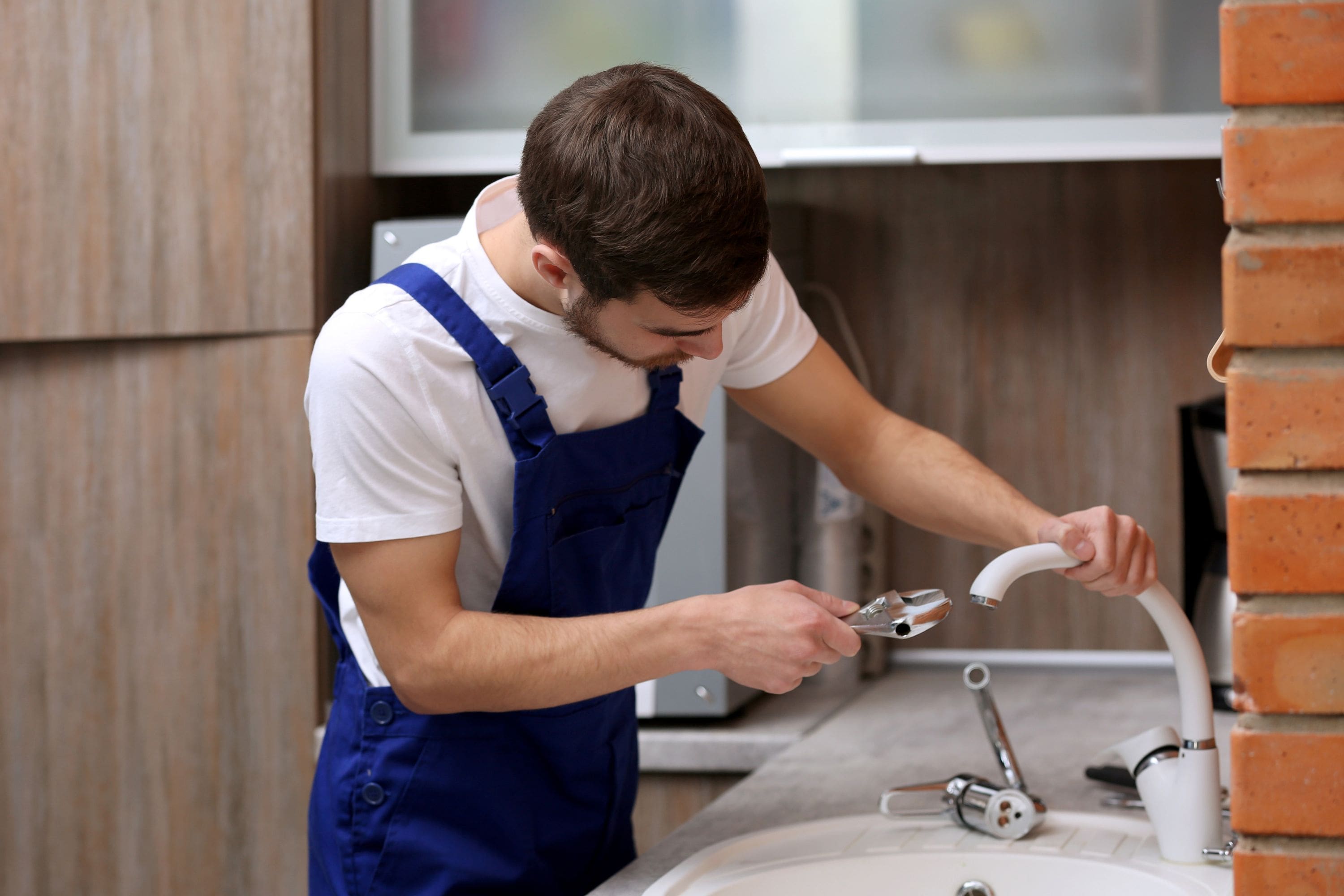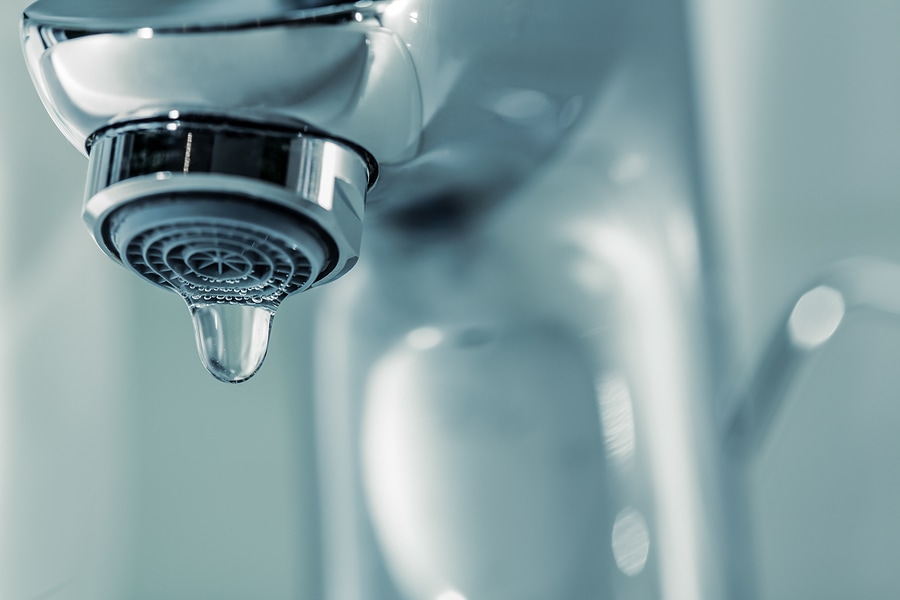We have discovered this post pertaining to Leaky Faucets: Why They Happen & What to Do About Them listed below on the web and think it made sense to write about it with you here.

Trickling taps may look like a small trouble, yet their effect exceeds simply the nuisance of the sound. From wasting water to sustaining unneeded financial costs and health and wellness dangers, disregarding a leaking faucet can cause various repercussions. In this post, we'll look into why it's essential to address this typical family concern promptly and properly.
Wastefulness of Water
Environmental Impact
Dripping taps add significantly to water wastage. According to the Environmental Protection Agency (EPA), a solitary tap trickling at one drip per second can waste greater than 3,000 gallons of water each year. This not just stress water sources yet also impacts ecosystems and wildlife dependent on them.
Financial Costs
Raised Water Expenses
Beyond the ecological influence, trickling faucets can pump up water bills considerably. The gathered waste in time converts right into higher energy expenditures, which might have been stayed clear of with timely repairs.
Prospective Residential Property Damages
In addition, prolonged leaking can bring about harm to components and surfaces bordering the faucet. Water build-up can create staining, rust, and even architectural concerns if left ignored, leading to added repair work expenses.
Health and wellness Problems
Mold And Mildew and Mold Development
The consistent existence of wetness from a leaking tap develops a perfect environment for mold and mold growth. These fungi not just endanger indoor air quality yet likewise posture wellness dangers, particularly for people with breathing conditions or allergic reactions.
Waterborne Conditions
Stationary water in leaking faucets can come to be a breeding place for microorganisms and various other virus, boosting the danger of waterborne illness. Contaminants such as Legionella bacteria flourish in stationary water, possibly causing major diseases when ingested or breathed in.
Do it yourself vs. Professional Repair service
Benefits and drawbacks of DIY Repair Service
While some may attempt to fix a trickling tap themselves, do it yourself repair work come with their very own set of difficulties. Without proper expertise and devices, do it yourself attempts can exacerbate the problem or result in insufficient fixings, lengthening the trouble.
Advantages of Working With a Professional Plumber
Employing a professional plumber ensures that the underlying cause of the leaking tap is addressed properly. Plumbers possess the competence and equipment to diagnose and fix faucet issues effectively, saving time and reducing the danger of further damages.
Step-by-Step Overview to Dealing With a Dripping Tap
Devices Needed
Prior to attempting to fix a leaking tap, collect the required devices, consisting of a flexible wrench, screwdrivers, substitute components (such as washing machines or cartridges), and plumber's tape.
Typical Tap Issues and Their Solutions
Identify the type of tap and the particular concern triggering the drip. Usual troubles include worn-out washers, rusty shutoff seats, or malfunctioning O-rings. Refer to manufacturer directions or on the internet tutorials for detailed advice on repair work.
Preventive Measures
Normal Upkeep Tips
To prevent leaking taps, execute routine maintenance such as cleaning aerators, checking for leakages, and changing worn-out parts quickly. Furthermore, take into consideration setting up water-saving gadgets or updating to a lot more reliable components.
Significance of Prompt Repairs
Resolving dripping taps as quickly as they're discovered prevents more water wastage and potential damages, inevitably saving both water and cash in the future.
Impact on Residential Or Commercial Property Value
Perception of Well-Maintained Residential Property
Maintaining a building in good condition, consisting of resolving upkeep concerns like dripping faucets, improves its regarded value and desirability among prospective customers or lessees.
Influence on Resale Value
Properties with properly maintained plumbing components, consisting of taps, command greater resale worths in the real estate market. Addressing leaking faucets can add to a positive impression during residential or commercial property inspections and settlements.
Environmental Obligation
Specific Contribution to Conservation
Taking responsibility for fixing trickling faucets aligns with broader initiatives toward water conservation and ecological sustainability. Every person's activities collectively make a considerable impact on protecting valuable sources.
Lasting Living Practices
By focusing on prompt repair services and taking on water-saving habits, individuals contribute to lasting living methods that benefit both present and future generations.
Conclusion
Attending to a trickling faucet surpasses simple ease; it's a crucial step towards conserving water, minimizing economic costs, and securing health and wellness and residential or commercial property. Whether with do it yourself repair services or professional support, acting to fix dripping taps is a little yet impactful method to promote accountable stewardship of resources and add to a healthier, extra lasting future.
How to Fix a Leaky Faucet: Step-by-Step Repair Guide
A leaky faucet may seem like a simple annoyance, but if it's not fixed promptly, that leak could cost hundreds to potentially thousands. From water damage to mold, mildew, and high water bills, even a tiny leak can be catastrophic if left unattended. Damage like this can even affect the overall value of your home, so it's important to take the right approach for leaky faucet repair. You may need the help of a plumber in some cases, but we've got a few tips you can try on how to fix a leaky faucet before calling the pros.
Four Faucet Types
When you're learning how to fix a leaky faucet, the first step is knowing what kind of faucet you're working with! There are four common types.
Cartridge Faucets
Cartridge faucets come in one- or two-handled varieties. In one-handled cartridge faucets, hot and cold water combines in a single cartridge. In the two-handled versions, hot and cold water are controlled separately and mixed in the faucet.
Ball Faucets
Ball faucets have a single lever you push up and down to adjust the pressure and rotate to change the temperature. A slotted metal ball controls the amount of water allowed into the spout.
Compression Washer Faucets
They're the oldest type of faucet, but they're still used in many homes — especially older ones. Compression faucets have two separate handles that, when turned, raise or lower the washer that seals a water valve. This valve stops water from flowing through the faucet when it is turned off.
Disc Faucets
Disc faucets rarely need to be repaired due to their maintenance-free design. The water flow is controlled by two discs — the upper one raises and lowers against a fixed lower disc, creating a watertight seal. If your disc faucet starts leaking, you may need to replace the seals or clean residue buildup from the inlets.
Fixing a Leaky Faucet
Step 1: Turn Off the Water
Whether you're learning how to fix a leaky bathtub faucet or how to fix a leaky kitchen faucet, always turn off the water supply to your working area when you're fixing a leak. The last thing you want is a flood added to your list of things to fix.
Look for the shutoff valves below your sink or around the tub and turn them clockwise to stop the water flow. If your faucet doesn't have shutoff valves, you may need to turn off the water for the whole house. Check to make sure it's off by turning the faucet on. If nothing comes out, you're ready to start the repair.
Step 2: Take Apart the Faucet
How you disassemble your faucet depends on the type of fixture you have. You can use a flathead screwdriver to remove the caps on top of the handle or handles for cartridge and compression faucets. Inside, you should see handle screws. Unscrew these with a screwdriver to remove the handle.
Disc- and ball-style faucets will typically have an inlet screw near the handle, and removing that will reveal the interior of the faucet.
Detach the Valve Stem
For cartridge- and compression-style faucets, you'll see the inner valve stem or cartridge once you remove the faucet handles. If you have a compression faucet, unscrew the brass valve stem. If you have a cartridge faucet, pull out the cartridge. If your cartridge has been in place for a while, it may require some tools or extra force to remove it due to mineral deposits.
Examine and Replace Parts
Once you've removed the parts, check them out to confirm what needs to be replaced. You may see corroded rubber washers, O-rings, stems, or cartridges. On a ball-style faucet, check the seats and springs for damage.
If you need to repair a leaky disc faucet, check the inlet and seals on the lower disc.
Once you determine what parts must be replaced, visit your local hardware store. Bring the damaged parts with you to ensure you can purchase the correct components to replace them.
Clean Valves and Faucet Cavity
If you've removed a stem or cartridge, you may notice mineral buildup in the faucet's threads. Use white vinegar to clean the valve seat by soaking it for a few minutes, then scrub it away with a soft toothbrush and rinse with warm water. You can also clean the interior of the faucet in the same way.
Reassemble the Faucet
Once your faucet is cleaned and the required parts have been replaced, it's time to reassemble it. Put the pieces back together and slowly turn the water supply back on. Doing this slowly is crucial because too much initial water pressure can damage the new hardware you've just installed.
https://homewarranty.firstam.com/blog/how-to-fix-leaky-faucet

As a person who reads about 4 Common Reasons for a Leaky Faucet, I think sharing that information was a good idea. So long as you enjoyed our post kindly consider to share it. We love reading our article about 4 Common Reasons for a Leaky Faucet.
Comments on “What It's Important to Fix a Leaking Faucet”